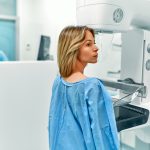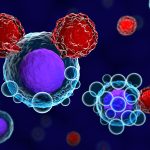-
May 17: The Week in Cancer News
Disparities in cancer outcomes shrink but persist, and FDA approval increases access to HPV screening.
by Eric Fitzsimmons
-
May 10: The Week in Cancer News
People may be able to wait longer between colonoscopies, and a trial evaluates a less invasive option for treating prostate cancer.
by Thomas Celona
-
May 3: The Week in Cancer News
Updated recommendation lowers age for breast cancer screening, and laboratory tests will undergo greater FDA oversight.
by Marci A. Landsmann
-
April 26: The Week in Cancer News
Supplemental breast screenings are not covered by Medicare, and researchers develop a treatment option for a form of eye cancer.
by Kevin McLaughlin
-
April 19: The Week in Cancer News
A urine test may help grade prostate cancers without biopsies, and states look for savings and better health in palliative care.
by Eric Fitzsimmons
-
April 12: The Week in Cancer News
Study finds younger generations are aging faster, putting them at increased risk for cancer, and swapping the order of breast cancer treatments could improve patient care.
by Thomas Celona
-
April 5: The Week in Cancer News
More cancer patients are enrolling in clinical trials, and sentinel node biopsies alone may be adequate for some early-stage breast cancers.
by Marci A. Landsmann
-
March 29: The Week in Cancer News
Survival rates have increased for older AML patients who receive stem cell transplants, and cervical cancer diagnoses rise among women living in low-income counties.
by Kevin McLaughlin
-
March 22: The Week in Cancer News
First CAR T-cell therapy approval in chronic lymphocytic leukemia, and Environmental Protection Agency announces a complete ban on asbestos use in manufacturing.
by Thomas Celona
-
March 15: The Week in Cancer News
Modified CAR T-cell therapy shows promise in glioblastoma, and an immunotherapy may soon be available as an injection.
by Eric Fitzsimmons
Cancer Talk
Progress Against Cancer
New research fuels progress in cancer survival, prevention and side effect management.
Experts Urge Consideration Before Switching Cancer Care ProvidersPatients should consider the potential risks, and not just rewards, before changing providers.
by Kyle Bagenstose
Vaccines Spark Activity in Pancreatic CancerScientists thought pancreatic cancer wouldn’t respond to immunotherapy. Now research has found vaccines can trigger the immune system to fight the disease.
by Thomas Celona
Navigating Out of Financial ToxicityPeople with cancer face an increased risk of financial hardship. Education and expert guidance can offer patients a lifeline.
by Thomas Celona














